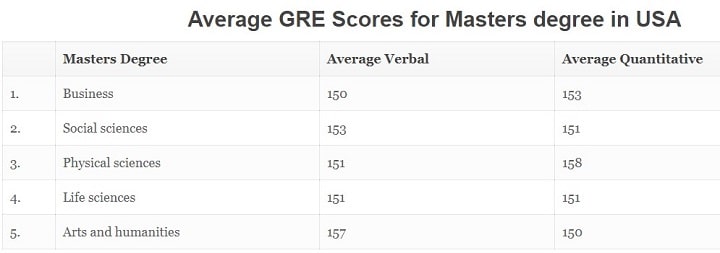
Are you wondering what’s the difficulty level of the GRE? There are a couple of important factors involved.
The maximum score is 340, with both sections accounting for 170 max (the writing tasks are scored independently 0-6). Depending on which grad school you want to join, you will need around 155-160 per section. Seems daunting? For most English native students, the verbal and writing parts are quite manageable, but usually, the quantitative reasoning causes the most trouble (especially if you haven’t practiced for a while). In this article, we’ll dig a little deeper into the difficulty of the GRE.
I’ll show you:
- How hard is it to achieve a certain score?
- How GRE compare to other tests
- The main factors which contribute to the difficulty of different sections
- And much more
1. How hard is it to get a score of at least 300 on the GRE?
It’s very easy to achieve 300 on the GRE. With a minimum level of preparation, and especially if you invest in a GRE self-prep course like the one from Princeton Review or Magoosh, expect to get a score much higher than 300. But still, it all depends on your willingness to do the work. The average score falls somewhere between 150 and 152 per section (and 3,5 for writing). So yes, 300 is a perfectly average score and you can do much better than that. You can get 300, probably with 3-4 weeks of studying for 3-4 hours a day. It all depends on your situation. Non-natives usually do better on Quant, and natives do better on Verbal. Another thing to take into consideration is the GRE score requirement of your particular school. You can easily check different stats for US-based grad schools here, but most often, if you have a decent GPA (above 8), a score of 300 should be enough. But it’s always better to aim for at least 310+.
Here you can check the average GRE scores required for Master’s programs in the US:
2. How hard is the GRE compared to the ACT or SAT?
On average, the GRE is slightly more difficult than the ACT or SAT simply because it’s used for grad school applications. The good thing is that the GRE is a computer-based test that is helpful, as most students prefer clicking to writing on a piece of paper. Another good thing is that the GRE is administered every 21 days so if you fail, you can easily retake it and get a better score. The only disadvantage here is the cost (on average $200 per test – depending on your part of the world). It’s really difficult to convert your SAT/ACT scores into GRE scores simply because the tests are quite different. But on average, the math questions are even a bit more difficult on the SAT/ACT than on the GRE. The verbal sections are much more slippery on the GRE. While on ACT/SAT focuses on knowledge, the GRE is more about logic and reasoning, hence, in many respects, it’s easier to tackle because it’s more intuitive. Also, the GRE is much easier than other tests such as GMAT, MCAT, or LSAT, again, because it requires less specialized knowledge.
3. How long does it take to prepare for the GRE?
It’s recommended to spend at least 3-4 months on prep if you want to get a 310+ GRE score. This means around 3-4 hours of study each workday, and some good rest and regeneration on weekends. If you just learn 10 new words a day, you’ll master 1200 new, sophisticated words in four months. The key here is consistency. Do 10 practice questions a day, 10 quant concepts, 10 words, 1 analytical essay a week, and one full-length practice test every two weeks. If you can keep up with this simple schedule for a couple of months, you’ll be more than prepared to meet any GRE challenge. It’s best to invest in a fairly inexpensive ($100-400) prep course from companies like Princeton Review or Magoosh. They’ll give you a much more structured study approach, as well as online drills which will prepare you for the real-world exam more efficiently.
Related topic: Should You Take A GRE Prep Course?
4. One thing working in your favor – GRE is a multiple-choice test
All sections of the exam (except the writing part, of course), are fully multiple-choice based. There are no short written answers or “fill in the blanks” types of answers. This makes the exam more manageable, especially because there’s no penalty for marking wrong answers. This is great news because if you’re completely stuck, you can still go with your intuition and possibly score another point. You are also free to skip the difficult questions and answer them later if you have some additional time. It all depends on your unique strategy which you’ll surely develop with practice.
Here’s an example of the “review” screen you can use to “manage” your answers during the exam:
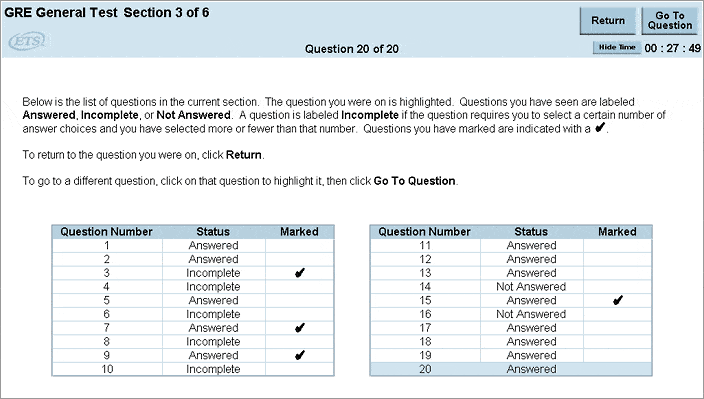
5. How hard is the GRE writing section?
Here it all depends on your writing skills. If you haven’t written anything since your college application essay, you may be in big trouble. Even for experienced writers, it’s hard to score a perfect 6 on the GRE analytical essay. Most students average around 3,5 on this part, but this shouldn’t intimidate you. You’ll have to face two separate, 30-minute tasks – “analyze an issue” and “analyze an argument”. The best way to prepare for that is to find a few sample tasks and tackle them within 30 minutes. Then, show your essay to a teacher or a colleague and evaluate it together (it’s hard to look objectively at your writing). Another challenge here is that you’ll have to write on a computer. The big question here is: how fast can you type? You can check your WPM (words per minute) with a timer. If you’re in the 70-80 WPM range, you’ll be able to complete the writing tasks with more ease. Touch typing is one of the most valuable skills you’ll ever learn. You can master it in one month with the use of a computer program.
Here’s a sample writing prompt for the GRE “analyze an issue” writing part:
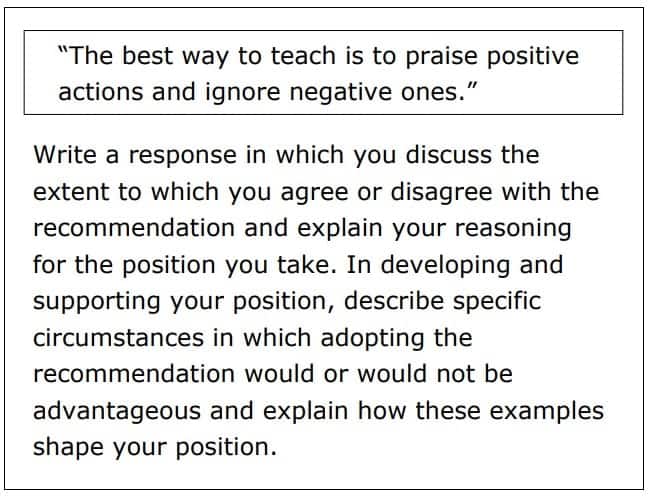
And here’s another GRE “argument” prompt:

Do you see yourself tackling these kinds of tasks with ease? The best way to deal with these assignments is to take one of the many prompts published by ETS (argument prompts and issue prompts) and complete them against the clock.
You can also check some of my essay-related materials:
6. Time – a major difficulty factor on the GRE
The GRE tests your speed more than anything else. There are two verbal reasoning sections (30 minutes each), and two quant sections (35 minutes each). This means you’ll need to learn how to adapt your pace and answer questions with lightning speed. With only 1m 45s or 1m 30s per question, you’ll have to make fast decisions and know when to drop a question if you truly don’t know the answer. If you’re still stuck after one minute, it’s better to move on, because you’ll need a few additional seconds for even trickier questions. Then, you’ll only have 30 minutes per analytical writing task. This is not a lot of time for an unskilled student. The only way to overcome this challenge is to time yourself whenever you practice for the exam. Do one section and see how much time you spend. Repeat until you can do each section in 25-30 minutes with a satisfactory score.
Related topic: The Best Way To Prep For The GRE (8 Tips)
7. How hard are math and physics subjects on the GRE?
If you want to apply to an engineering school or any other grad school where math is essential, you’ll need at least 160+ on the quant section (in other instances you’ll be able to get by with around 155). If you’re coming from a STEM background, you may find that the questions are relatively easy to tackle. Basic high-school math skills should be enough to deal with most of them. The only issue is the time constraint. There are two, 35-minute quant sections with 20 questions each. For all you math whizzes out there, this gives you only 1 minute and 45 seconds per question. That’s why you need to be fast, fast, fast. The best way to train yourself to become better is to do the full-length quant section with a timer by your side. You’ll learn how to better interact with the exam, and how to answer tricky questions with only a few seconds on your hands. So praise heavens if you have a technical background, and cringe if you’re more of a humanist (joke). Just make sure you revise all the high school math and do as many full-length tests as possible. This should be enough.
Math skills required for the GRE:
- Number properties
- Rates / Averages
- Ratios and proportions
- Algebra
- Percents
- Data analysis
- Functions
- Systems of equations
- Plane geometry
- Data tables and graphs
- Basic statistics
Does the following sample GRE quant question fill you with dread? You better start preparing.
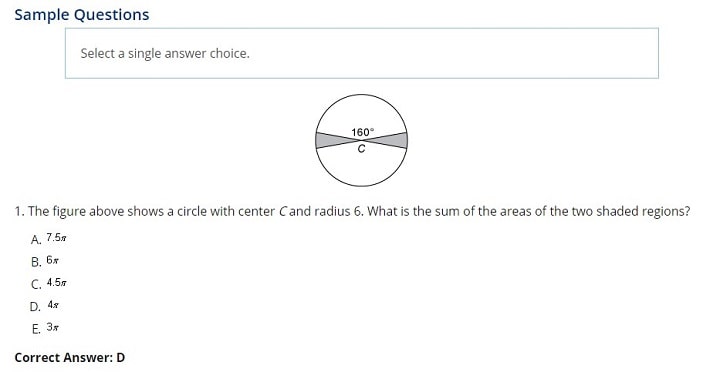
8. Vocabulary – a must-have if you want a high GRE score
Indubitable? Acrimonious? Sedulous? Infringe? Yes, vocabulary can be a problem for you because you simply can’t go around it. If you don’t know the words, and you’re asked for a definition, you’re stuck. The only thing you can do is guess (which is not the best strategy to get a high GRE score). Plus, the vocabulary takes up half of the verbal reasoning section (30 minutes, 25 questions). So allow adequate time to learn your words. I’ve found that the best way to do it is with vocabulary-learning apps you can install on your phone. I’ve used one called Anymemo to learn over 5000 GRE words. This took some serious study time, but because of the spaced repetition method, I was able to retain these words for a long time. I highly recommend you learn with a flashcard app or the actual flashcards you can get for under $20. The high amount of vocabulary you need to master is especially intimidating if you’re not a native English speaker. But with around 3-4 months of preparation, you should be able to have enough knowledge to pass the verbal section without any problems.
If you need to look further into this matter, you can check some of my articles on vocabulary:
- 12 Ways to Expand Your Vocabulary
- 115 Advanced Words in English (With Examples of Usage)
- 50 Sophisticated Words in English – With Examples From Movies
Pro tip: If you check a couple of previous GREs on the ETS website (and elsewhere), you’ll find that the vocabulary is quite repeatable. So go through as many vocab sections as you can and you’ll probably encounter many similar words during the actual test.

Words like “frugal” are still among the easiest ones you’ll encounter on the GRE.
9. Another difficult factor – the tricky wording of the questions
Understanding the question before answering is a major skill required to pass the GRE. Especially in the quant section, some questions will require logic and reasoning for you to come up with the proper answer. Sometimes you’ll think you got the answer, but there will be some hidden detail in the question that will change everything.
Just take a look at some of these ultra-tricky GRE questions and you’ll know what I mean:

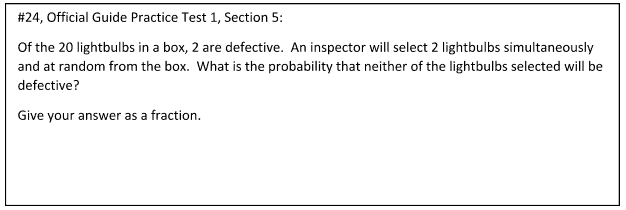

10. Are you used to completing computer-based tests?
As you may know, the whole GRE is done on a computer screen. The good thing is that you’ll be given scratch paper and a pencil right before entering the exam hall. You can use it to support yourself and note down some thoughts and calculations. But still, the whole test is done by clicking on a computer screen. If you’re not used to this type of examination, this may prove tricky so make sure you do at least a couple of practice tests on a computer.
11. GRE is an adaptive test
A unique thing about the GRE is that it adapts the difficulty of the questions based on the answers you gave during previous sections of the exam. The good thing is that there’s no spillover between different sections. For example, if you crush the verbal section, you won’t get ultra-hard questions on quant. In other words, the adaptability system only works within each particular section. So if you crush the first part of quant, you should expect craftier questions on the second part. But since you can’t do anything about the adaptability of the test, I suggest you simply forget about it as it’s beyond your control. Better concentrate on practice questions and doing computer-based drills.
Conclusion
As you can see, the difficulty varies quite a lot based on the grad school you want to apply to, as well as your verbal and math abilities. GRE is much more difficult than other tests you may have tried, and that’s because it measures your readiness for a higher level of education. So don’t just attempt the test hoping that everything is going to be okay. Aim for a score of at least 320 and the world is yours. Just make sure you invest time in learning and prep. Next up, you may want to explore a guide to services that can make your life easier in college.
Hey there, welcome to my blog! I'm a full-time entrepreneur building two companies, a digital marketer, and a content creator with 10+ years of experience. I started RafalReyzer.com to provide you with great tools and strategies you can use to become a proficient digital marketer and achieve freedom through online creativity. My site is a one-stop shop for digital marketers, and content enthusiasts who want to be independent, earn more money, and create beautiful things. Explore my journey here, and don't forget to get in touch if you need help with digital marketing.

